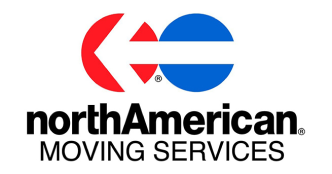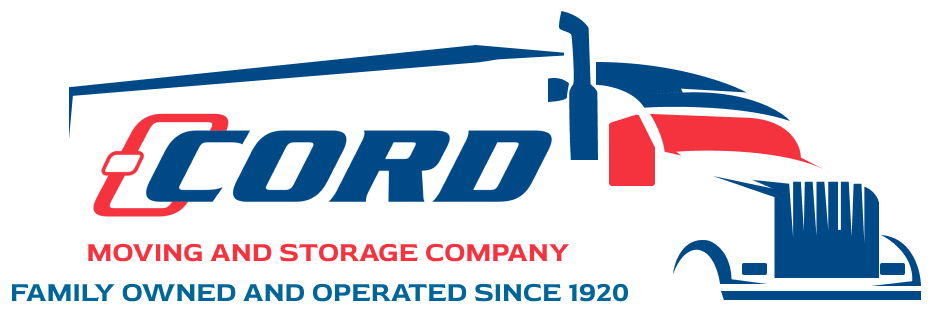Employee Relocation Services
Are you searching for employee relocation services in St. Louis or Memphis? Do you need a trusted moving company with comprehensive employee relocation solutions? When you’re seeking assistance with your valued employees’ moves, trust Cord Moving and Storage Company to provide services that efficiently and conveniently facilitate these relocations. Our team of moving experts understands the ins and outs of employee moves, and we customize our solutions to meet each employee’s unique needs and circumstances.
When you count on us for your employee relocations, you can expect nothing short of excellence every step of the way. Discover our complete array of services below.
Comprehensive Employee Relocation Services
Navigating the complexities of employee relocation demands meticulous planning and seamless execution. Our comprehensive suite of services ensures a hassle-free transition for both employers and employees. From meticulous planning to secure storage, we prioritize efficiency and convenience every step of the way. Learn more about our menu of offerings below!
- Planning and Logistics: Cord Moving and Storage’s seasoned experts meticulously plan every aspect of the relocation process, ensuring a smooth transition from start to finish. From scheduling moving dates to coordinating logistics, we handle all the details, allowing employees to focus on their roles without disruption. This aspect allows your employees to feel stress-free throughout the process as we take many responsibilities off their plates.
- Packing and Unpacking: Our professional packing services assure employees that their belongings will be handled with care and expertise. From fragile items to bulky furniture, our experienced packing professionals ensure everything is packed securely for safe transport. We understand the most effective ways to protect items while packing, and we utilize the highest quality supplies to achieve these results. Upon arrival at your new home, we efficiently unpack and set up belongings, minimizing downtime and stress.
- Secure Storage: For employees needing temporary storage solutions throughout their moving journey, we offer secure facilities equipped to safeguard belongings until they’re ready for delivery. Our climate-controlled storage units provide peace of mind, protecting even the most fragile or valuable items during the moving process. Plus, you can rest assured that your belongings are safe in our secure facility, complete with 24/7 surveillance.
- Local and Long Distance Moving: Whether your employees are relocating a state away or across the country, the Cord Moving and Storage team of experts is equipped to handle local and long-distance moves with precision and efficiency. With a fleet of modern vehicles and experienced drivers, we ensure timely delivery to any destination, no matter the distance. We always communicate with our customers every step of the way, allowing you to rest assured that your items will arrive on time and in excellent condition.
Why Choose Cord Moving and Storage for Employee Relocations?
Wondering what sets Cord Moving and Storage apart from other companies that provide employee relocation services? Learn about a few of the many reasons we’re the top choice for employee moving services in St. Louis and Memphis.
- Highly Rated Services: Over the years, Cord Moving and Storage has garnered many positive reviews that speak to the caliber of our services across various categories, including employee relocations. Through this customer feedback, you can discover the ways we have improved these customers’ relocations and offered solutions that truly work, empowering you to feel confident while working with us.
- Customizable Solutions: At Cord Moving and Storage Company, our solutions don’t simply fit into a one-size-fits-all approach. Instead, we offer customizable services that allow you, as the customer, to work with us to decide what is best suited to your goals and needs. We can accommodate your employees’ relocations with a wide variety of services that can be tailored to fit their individual circumstances.
- Experienced, Knowledgeable Staff: With the team at Cord Moving and Storage, you can always expect to receive services from staff who truly understand the most effective ways to handle a move. We always utilize industry best practices throughout our relocation services to ensure we achieve the most desirable results every step of the way. Our entire team is highly trained and experienced, enabling them to provide only the highest quality solutions to our customers.
- 104 Years in the Industry: Cord Moving and Storage Company has proudly served in the moving industry for over a century, allowing us as a business to continuously grow and develop our services to be as effective as possible. This 104-year history has also allowed us to solidify ourselves as a trusted source of moving solutions—a characteristic that offers peace of mind to our customers as they entrust us with their relocations.
- Dependability and Trustworthiness: With any service you purchase, feeling able to trust and rely on the providers is crucial. At Cord Moving and Storage, we understand this, and we always want to instill in our customers a sense of trust in the quality and caliber of our highly-rated services. Through our experiences and credentials, we offer our clientele a clear picture of the work we’ve completed in the past, allowing them to feel confident in our abilities to complete seamless employee relocations for them.
Providing Top-Notch Solutions to Your Valued Employees
At Cord Moving and Storage, we understand that the employees are the true fabric of your company—we feel the same way about our trusted staff. Because of this, we always take care and consideration to ensure your employees receive relocation solutions that truly work. Our highly-rated services in St. Louis and Memphis are fully licensed and insured, and we always work with the customer to tailor their solutions to meet their individual needs. With our team on your side, you can trust that moving will feel like a breeze, no matter the size or distance of your relocation.
Employee Relocations Made Easy with Cord Moving and Storage
When you need employee relocation services you can rely on, there’s no better option than Cord Moving and Storage Company. With our trusted levels of experience and expertise, you can count on Cord Moving and Storage to deliver only the highest caliber solutions when we serve your valued employees. Our team understands the most effective ways to handle these relocations, and we always aim to get your employees up and running in their new location as seamlessly and efficiently as possible.
You can expect nothing short of excellence as the Cord Moving and Storage team handles your employee relocation needs in St. Louis, Memphis and beyond. Interested in working with our team of experts? Request a quote online or call today, and discover employee relocations done the Cord Moving and Storage way!


